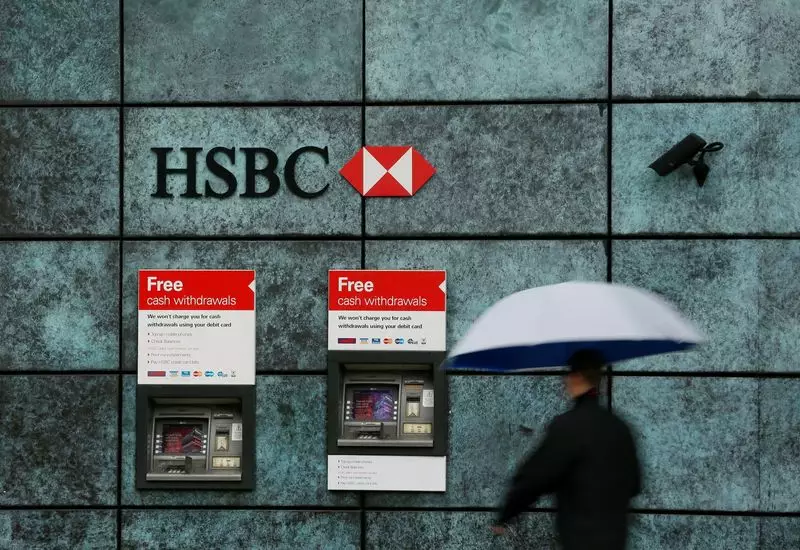In the latest financial disclosures, HSBC Holdings has demonstrated a robust third-quarter performance, significantly exceeding market expectations. The bank reported a profit of $8.5 billion, representing a 10% increase from the previous year and surpassing analysts’ expectations of $7.6 billion. This impressive growth can be attributed to a favorable interest rate environment, which, despite being volatile, revealed slower-than-anticipated rate cuts, allowing HSBC to record heightened revenues in wealth management and wholesale banking sectors.
These positive results have sparked a notable reaction from the stock market, with HSBC’s shares climbing 3.7% to HK$71.60, marking the highest share price since August 2018. The bank’s strategic decision to embark on a share buyback program worth up to $3 billion—complementing an already established program of $6 billion—has further buoyed investor confidence. Such initiatives signal HSBC’s commitment to returning value to its shareholders amidst a complex financial landscape.
As HSBC thrives economically, the organization is also pivoting towards a significant operational restructuring under its new CEO, Georges Elhedery. The forthcoming overhaul aims to streamline operations, control costs, and enhance overall efficiency. Elhedery unveiled plans to reform the bank’s geographic structure by merging certain operations and splitting its focus between Eastern and Western markets. This strategic pivot is critical, particularly in a global financial environment characterized by decreased rates and rising economic uncertainty.
While the specifics of Elhedery’s plan will not be disclosed until February of next year, the initial reaction from stakeholders has been cautious optimism. Analysts highlight that understanding the implications of this restructuring will be as crucial as deciphering the current financial performance. Elhedery’s ability to navigate HSBC through these changes will be pivotal as the bank not only strives to enhance its global presence but also to manage costs more effectively in a climate of declining interest rates.
Sector Performance and Market Dynamics
Digging deeper into HSBC’s business segments, the bank reported a 5% increase in revenue compared to the same quarter last year, totaling $17 billion. Notably, this growth was driven by heightened client engagement with wealth management products, reflecting a shift in market sentiment that entrepreneurs and investors are seeking to adapt to changing financial landscapes. The bank’s performance in key markets—namely, foreign exchange, equities, and global debt—has positioned it favorably compared to its peers across the U.S. and Europe.
Competitors like Barclays have begun showcasing promising results, suggesting that financial institutions are beginning to establish a foothold for sustained profitability despite declining rates. This reveals a dynamic shift in the banking sector, where companies are compelled to innovate and diversify to offset potential income losses from interest rate cuts. Analysts contend that understanding market trends and customer behavior in these volatile times will be essential for future growth.
As HSBC gears up for its extensive restructuring plan, the market is keenly observing how these transformation efforts will shape the bank’s financial health in the years to come. Maintaining a tangible equity return target in the mid-teens for both 2024 and 2025 reflects the organization’s intention to remain ambitious, even amid shifting economic landscapes. Yet, the volatility surrounding interest rates poses a wildcard that could either hinder or propel HSBC’s strategic goals.
Additionally, the bank’s interim dividend of 10 cents per share marks a continued commitment to shareholder returns, following earlier payments that totaled 41 cents for the year. As details of the restructuring emerge and HSBC’s financial narrative continues to unfold, the upcoming months will be critical in determining whether the bank can effectively balance its commitment to shareholders while transitioning towards a more sustainable and profitable future.
HSBC stands at a pivotal moment. With strong quarterly results and ambitious plans to reshape its operations, the bank is poised to navigate the challenges of the modern banking era. Success in this endeavor will largely depend on the execution of its strategic vision and adaptability to an ever-evolving financial landscape.

